
We get asked a lot, “why should we bid on the name of our own hotel? Won’t Google users just click on our Organic result?”
NB: This is an article from gcommerce
This is a great question and one that gets to the core of our paid search strategies: filling the funnel and fighting back against the OTAs.
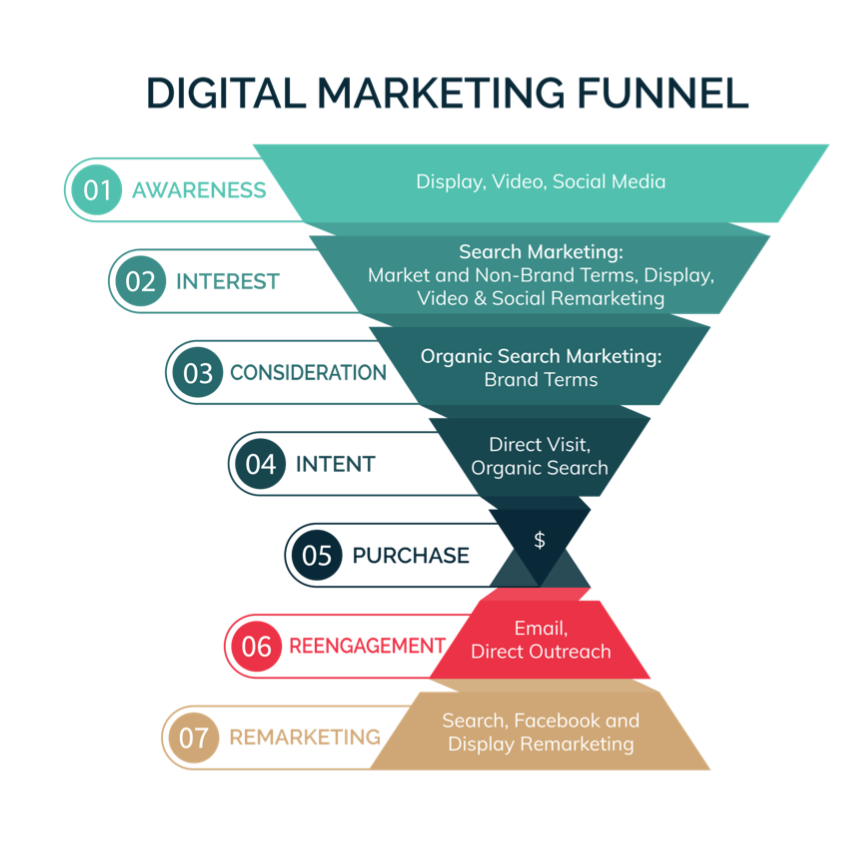
Subscribe to our weekly newsletter and stay up to date
Search marketing generally targets several parts of the funnel, the “Awareness” and “Interest” levels are usually targeted when people start to look for a place to stay – “hotels in san diego” – they don’t necessarily have an intent but are looking for what options might be available. This is a great way to target further up the funnel and look for people who might not be aware of your hotel or brand quite yet.
Once they get into the levels of “Consideration” and “Intent” they are usually searching for the specific name of your hotel. They might read some reviews, look at packages, or shop around a bit and this is the part of the booking journey that we definitely want to be present for. If we only target higher up the funnel with Market terms, we have a chance of losing that individual to an OTA or a competitor once they come back and are ready to book.
In a sampling of our client data, we can see that 34% of users have at least 3 interactions with the website and 5% have at least 9 interactions with the website prior to booking. So, it is a relatively large number of people that are coming on repeated visits to hotel websites before they end up booking.
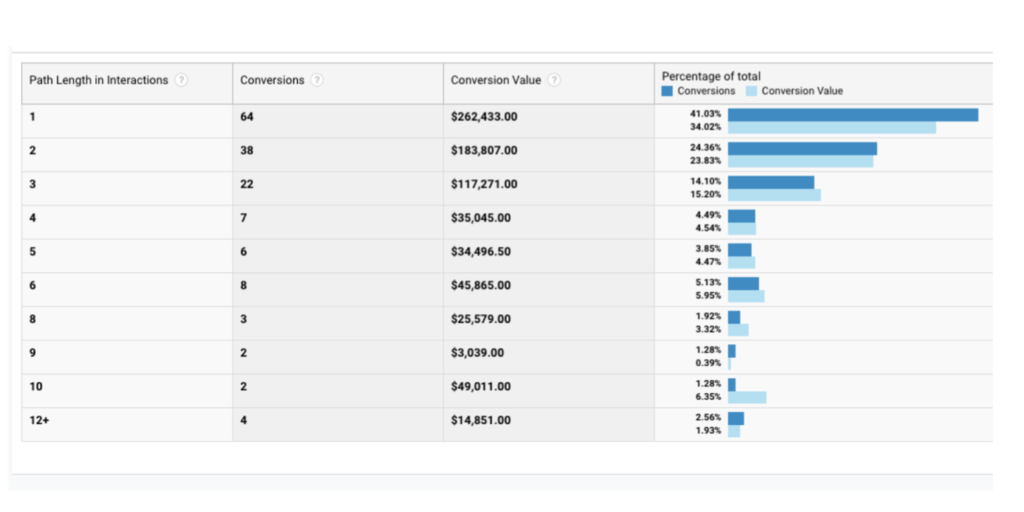
When someone searches for a hotel, they generally get a result similar to the one below. In this example, a GCommerce client is bidding on their own Name.
First Fold
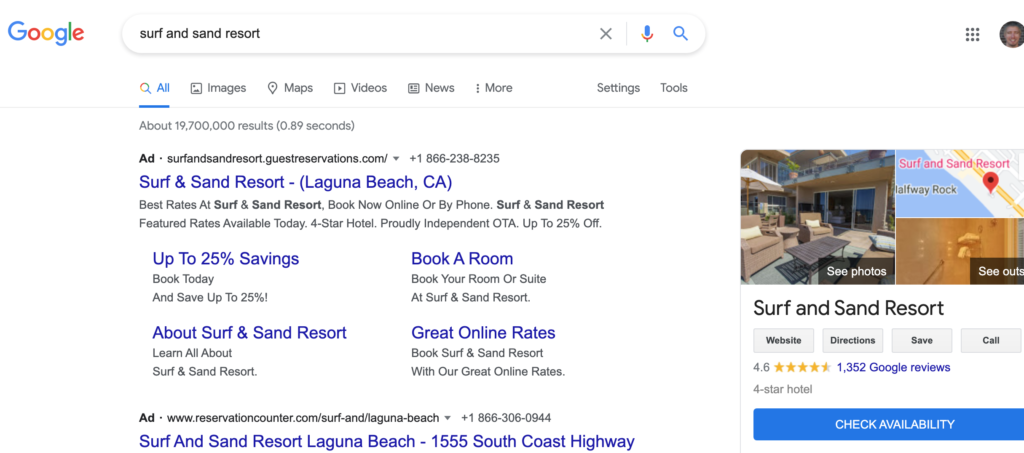
Second Fold
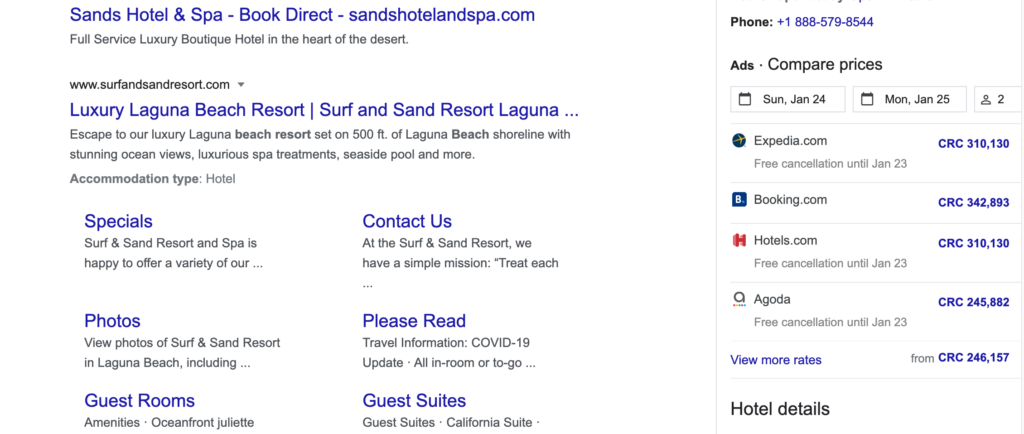
Third Fold
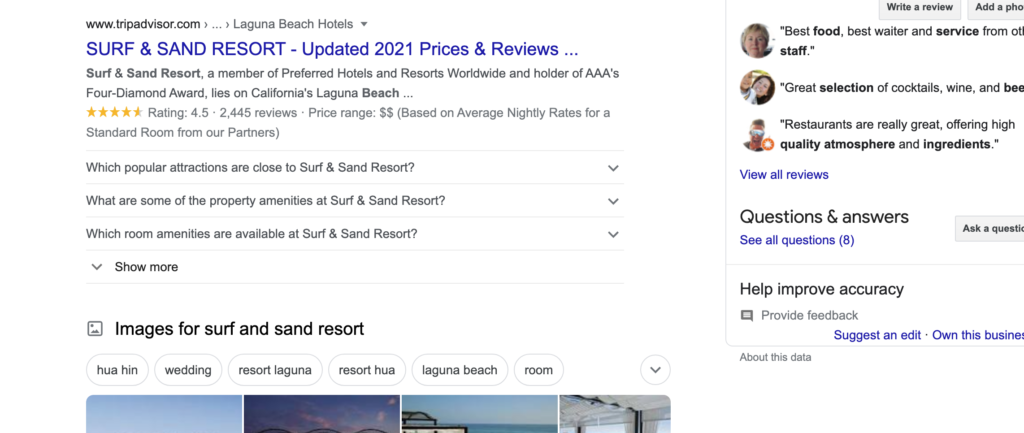
You can see it isn’t until the 3rd fold that a user sees a result that would lead them to another website. The 2nd fold has some options for Metasearch on the right side, which we would certainly encourage hotels to participate in, but the first fold of the page is pretty much just the ad and sitelink extensions for their Google Ads. If we were to take that ad away, the TripAdvisor result would move into the 2nd fold and everything below it would move up as well. Based on data from Google Results, the 1st result on the page averages 32% of the clicks, 2nd 17% and 3rd gets 11%. Without our Ad present, we leave that space open to OTAs or other websites, taking away potential traffic to our hotel website.
CPCs for name terms on Google generally average less than $1 and we usually see relatively healthy conversion rates for those terms. By taking up that space on the Google result page, you are increasing the chances that a new visitor converts to your website rather than an OTA, where you might lose upwards of 25% of the booking in fees and commissions. The relatively small investment in advertising for your own name will help bring down the overall Cost-per-Acquisition (CPA) in relation to a commission from an OTA.
In addition to getting a higher CTR from Google users, we have also been able to track internal data that organic traffic increases with the presence of search ads. The thought here is that if you are controlling the 1st result with an ad and the 2nd result is your organic listing, then you could get 49% of the traffic with the 1st 2 results if we assume the above study true to the overall results of a page.
But what if you are one of those lucky hotels where OTAs are not bidding on your brand name? Even if there truly are no other OTAs and no other competition for your name, we would want to make sure we communicate that with whoever is managing your search accounts so that they can limit bids and lower overall costs. Without any competition, we should be able to drive CPCs very low, decreasing the overall CPA of hotel guests and providing all of the benefits listed above with even less investment. Without any OTAs, we would almost encourage hotels to run PPC at a more aggressive rate than if there were OTAs because great benefits could be realized with little cost.




